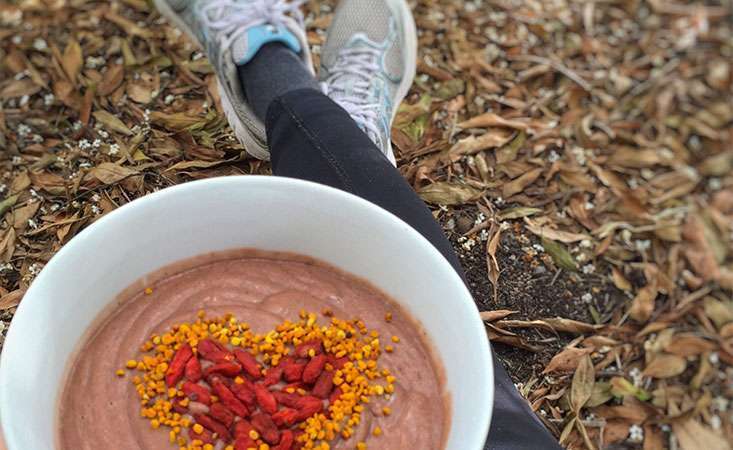
Everyone knows that staying active makes for a healthy lifestyle. Exercise can also be an important part of a daily routine for people with pancreatic cancer and may increase energy levels. At least 30 minutes of exercise per day is recommended, and for patients, it’s advised to break activity into small increments, if needed, while increasing activity over time as tolerated. Make sure to talk to your doctor before you start any type of exercise and to determine which activities may be best for you.
As important as exercise is, so is nutrition after. During this time, the idea is to restore fluids and electrolytes lost through sweat during activity, replace muscle fuel (carbohydrates) burned during exercise and provide protein to promote muscle repair and growth.
Maria Petzel, senior clinical dietitian for the Pancreas Surgery Program at MD Anderson Cancer Center weighed in (no pun intended) with some tips. Here’s what she said:
- It’s important to eat a snack with protein and carbohydrates between 15 minutes and one hour after exercising. This promotes muscle recovery and muscle building and starts to refill carbohydrates stored in the body.
- Examples of good snacks include a fruit smoothie with protein; yogurt and fruit; crackers and peanut butter and a piece of fruit; and trail mix with nuts and dried fruit. For readers who enjoy baking, Petzel recommended this recipe for Post-Workout Recovery Cookies – a good source of protein and whole grains.
- Eat a regular, well-balanced meal within four hours of finishing your workout.
- Hydration is very important. Be well-hydrated before starting exercise, and replace fluids during and after exercise. For low- to moderate-intensity exercise lasting less than 60 minutes, water is usually the best fluid. For exercise lasting more than one hour – especially moderate and high intensity, sports drinks help replace electrolytes.
Come back to our blog each week for a new installment of the Friday Fix.














